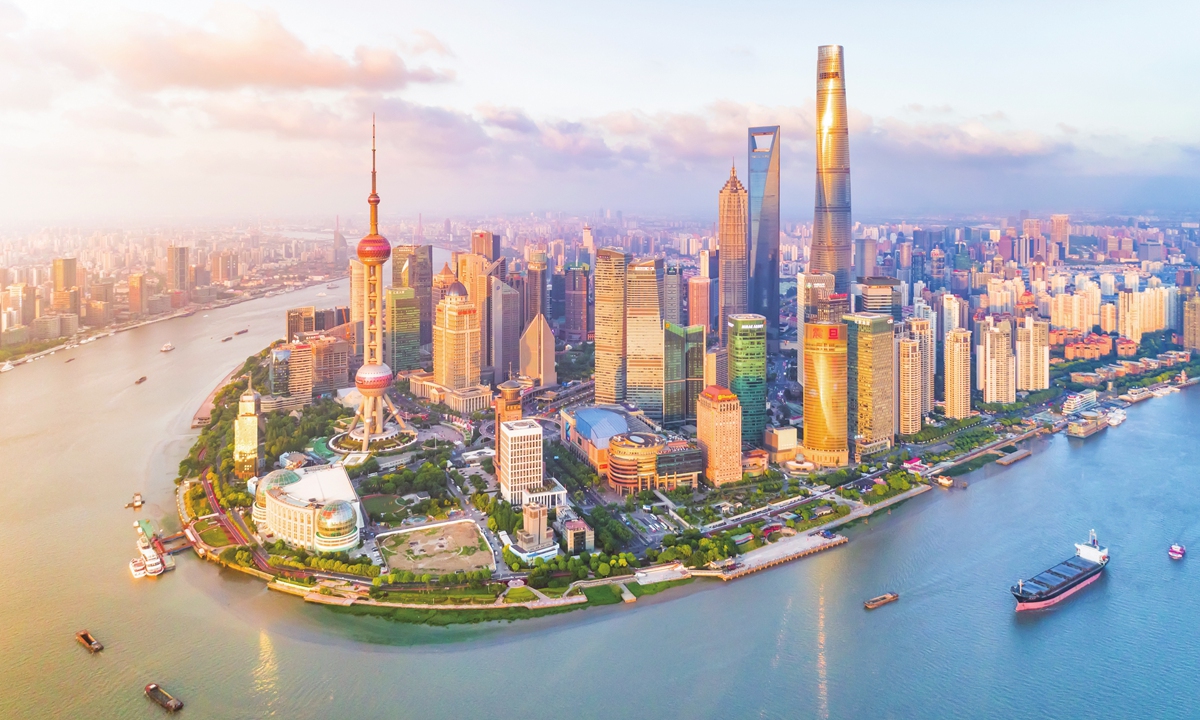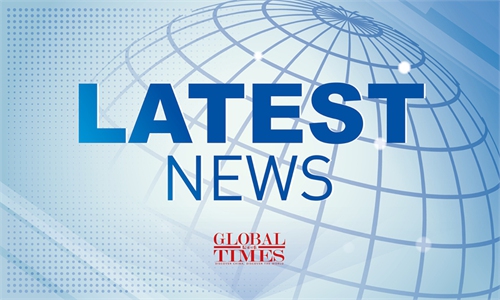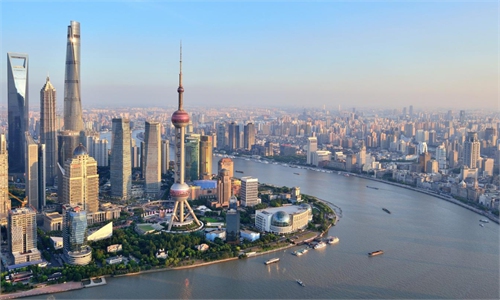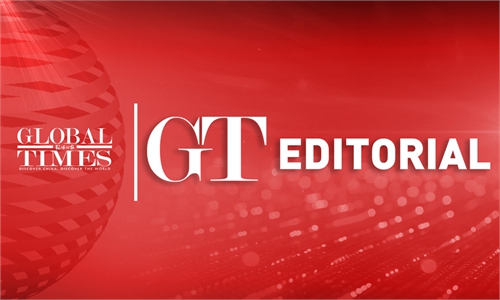Xiconomics in Practice: China's key meeting injects certainty to world as nation vows to unswervingly manage own affairs well amid tariff uncertainties

A view of Shanghai Photo: VCG
The meeting of the Political Bureau of the Communist Party of China (CPC) Central Committee held in Beijing on Friday has caught the attention of the international media, with some media outlets highlighting China's confidence in domestic economic recovery despite growing rising external challenges and China's call for the international community to uphold multilateralism and oppose unilateral bullying.
The key meeting sends a clear signal to the world that China has sufficient policy tools and will be fully prepared to deal with uncertainties brought by the US -provoked tariff war, a Chinese expert said on Saturday, noting that the encouraging signal from the meeting will also be uplifting for other countries and regions and inject certainty to the world economy.
Xi Jinping, general secretary of the CPC Central Committee, presided over the meeting, the Xinhua News Agency reported.
The meeting noted that it is imperative to coordinate domestic economic work and endeavors in the international economic and trade field, unswervingly manage the country's own affairs well, stay committed to expanding high-standard opening up, focus on keeping employment, businesses, markets and expectations stable, and deal with the uncertainty of drastic changes in the external environment with the certainty of the country's high-quality development, per Xinhua.
Heated discussion
As the first such meeting since the US initiated a tariff war against China, the meeting caught much attention among foreign media.
The absence of a stimulus bazooka in the plans reflected China's quiet confidence in its economic recovery, The Straits Times reported. "China has shown that it is in no rush to hold trade talks with the US or resort to drastic economy-revitalizing measures just yet. Instead, it is focusing on what it has said for months it wants to do - stabilize and strengthen the fundamentals of its economy," it said.
"It seems Beijing is not in a rush to launch a large stimulus at this stage. It takes time to monitor and evaluate the timing and the size of the trade shock," Reuters reported, citing an analyst. CNBC said in a report the measures mentioned during the meeting equip Chinese policymakers with tools to navigate external uncertainties, citing Bruce Pang, an adjunct associate professor at CUHK Business School, who expects a forthcoming private sector law to further improve the business environment.
The Guardian highlighted the reiteration at the meeting that "China will work together with the international community to actively uphold multilateralism and oppose unilateral bullying," while Bloomberg said that China's stronger-than-expected growth in the first quarter bought more time for the government to consider new steps.
While international media is closely watching how China will continue to carry out plans and policies to promote its high-quality development amid headwinds of rising protectionism and tariff upheaval, the key meeting showcases China's confidence as well as sufficient policies and full preparations to deal with external uncertainties, Li Changan, a professor at the Academy of China Open Economy Studies at the University of International Business and Economics, told the Global Times on Saturday.
China is the stabilizer of global economic growth, and the timely meeting will not only boost domestic confidence for stable economic growth but also send an encouraging signal to other countries, Li said.
Focus on own affairs
It is pointed out for the first time to "coordinate domestic economic work and endeavors in the international economic and trade field," which sets the tone for the country's economic work under new international situation, Chen Fengying, a research fellow at the Beijing-based China Institutes of Contemporary International Relations, told the Global Times on Saturday.
"The tariff war initiated by the US is likely to have a long-lasting impact globally because the US' sweeping tariffs are against the rest of the world and the issue is not as easy as could be resolved through simple talks. Against this background, the meeting clearly stated that we should 'unswervingly manage the country's own affairs well,'" Chen said.
Striving for high-quality development is the source of China's confidence in dealing with the uncertainty of drastic changes in the external environment, she said, pointing out tasks including defusing local government debt risks, consolidating the stable development of the real estate market and keeping the capital market stable and active.
Key measures include quickening the issuance and utilization of local government special-purpose bonds and ultra-long special treasury bonds, and timely cuts in the reserve requirement ratios and interest rates to ensure ample liquidity and stronger support for the real economy, according to the meeting.
Xi on Friday also urged efforts to promote the healthy and orderly development of artificial intelligence in China in a beneficial, safe and fair direction while presiding over a group study session of the Political Bureau of the CPC Central Committee on Friday, Xinhua reported on Saturday.
Xi emphasized that in the face of rapidly evolving new-generation AI technologies, China shall give full play to the advantages of the new system for mobilizing resources nationwide, uphold self-reliance and self-strengthening, prioritize application-oriented development, and promote the healthy and orderly advancement of the country's AI sector toward a beneficial, safe and equitable direction.
Xi urged efforts to consistently strengthen basic research and focus on overcoming challenges regarding core technologies such as high-end chips and foundational software, thereby building an independent, controllable, and collaboratively-functioning foundational software and hardware system for AI.
He emphasized leveraging AI to drive paradigm transformation in scientific research and accelerate breakthroughs in technological innovation across all fields.
"With the instruction, Chinese businesses and research institutes should accelerate the development of new quality productive forces through innovation so as to achieve high-level tech self-reliance, which will empower the country's industry and economy in fierce international competition," Cao Heping, an economist at Peking University, told the Global Times on Saturday.
New structural monetary policy instruments and policy-based financial instruments will be established to foster technological innovation, expand consumption, and keep foreign trade stable, according to Friday's CPC leadership meeting.
"In the next phase, we think the central bank will likely lower the reserve requirement ratio (RRR) to release long-term liquidity. With the accelerated fiscal easing in the second quarter, a RRR cut is most likely to be implemented first," said Wen Bin, chief economist at China Minsheng Bank.



